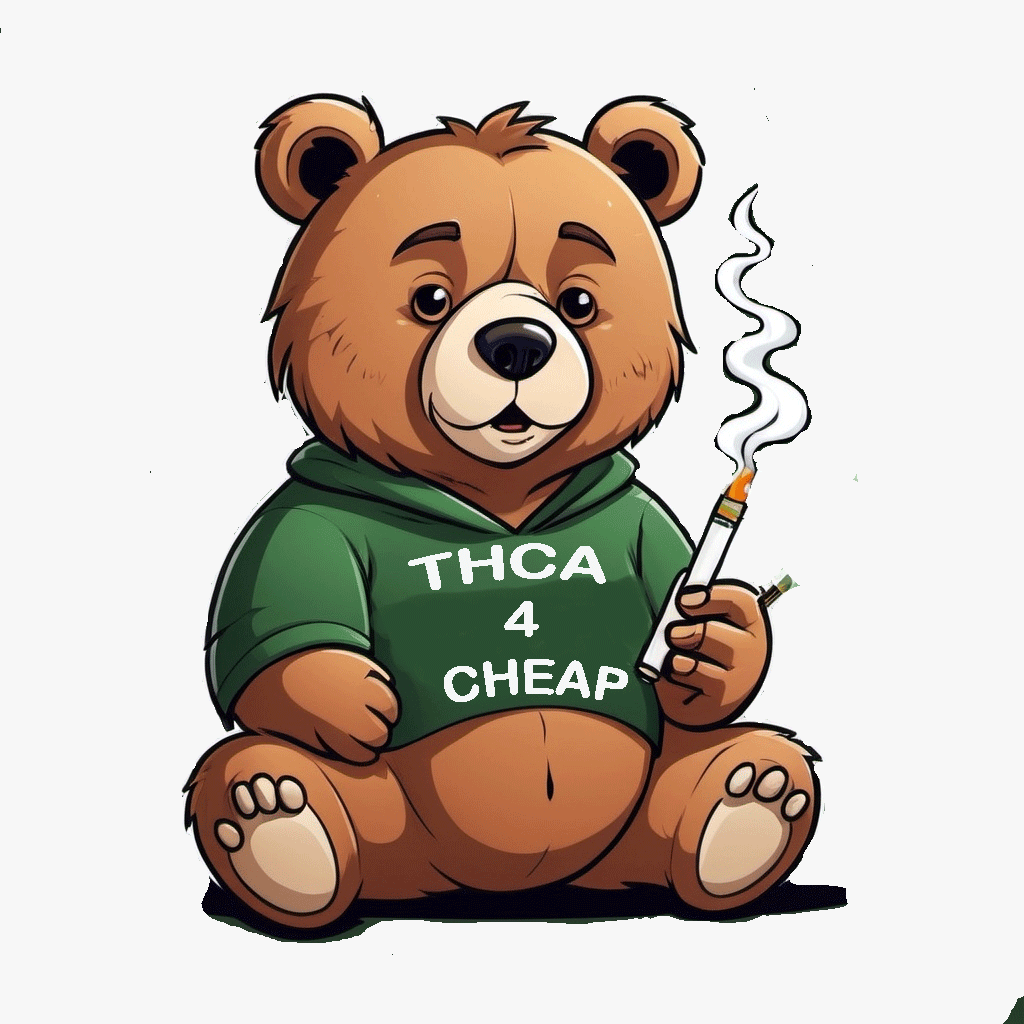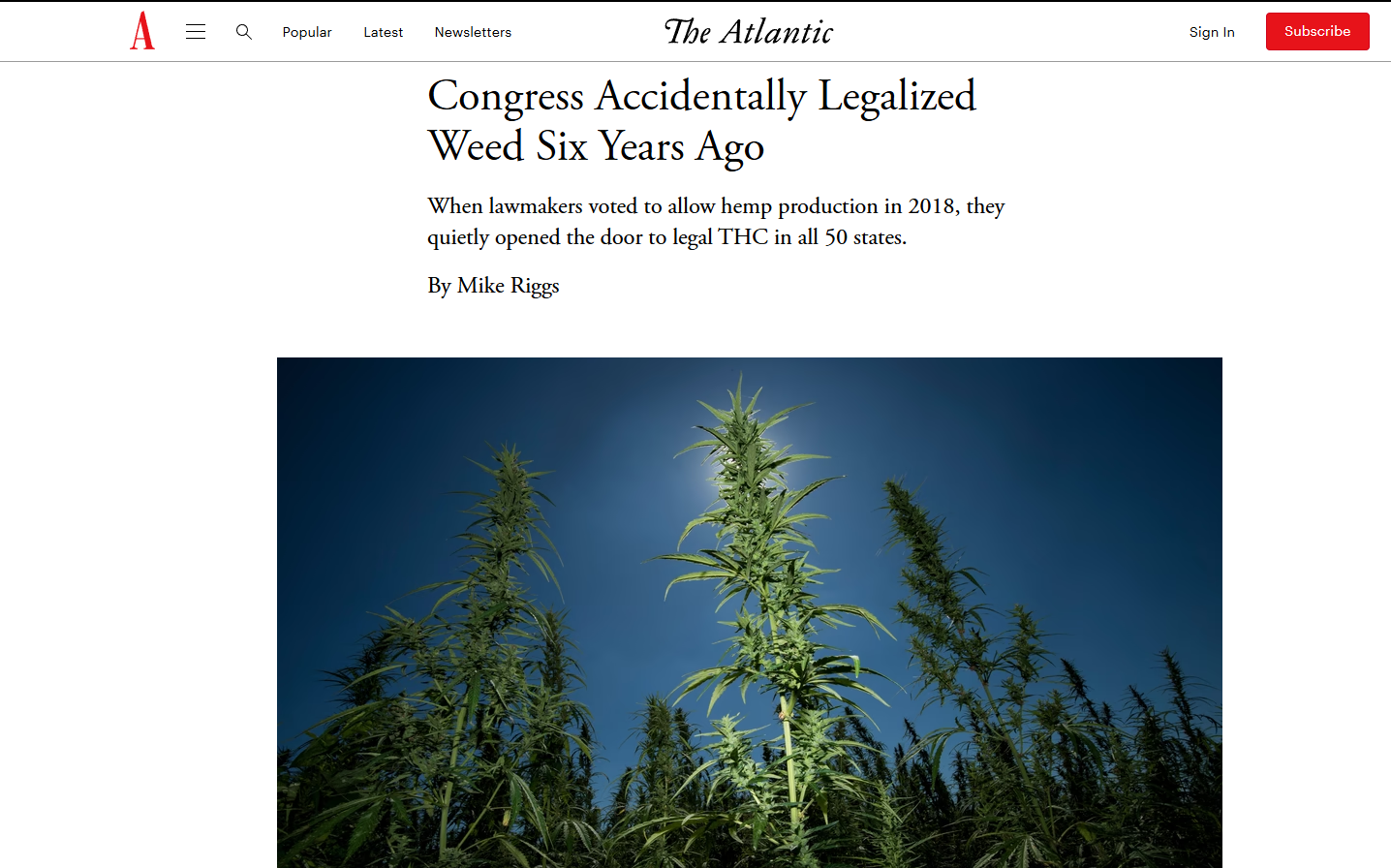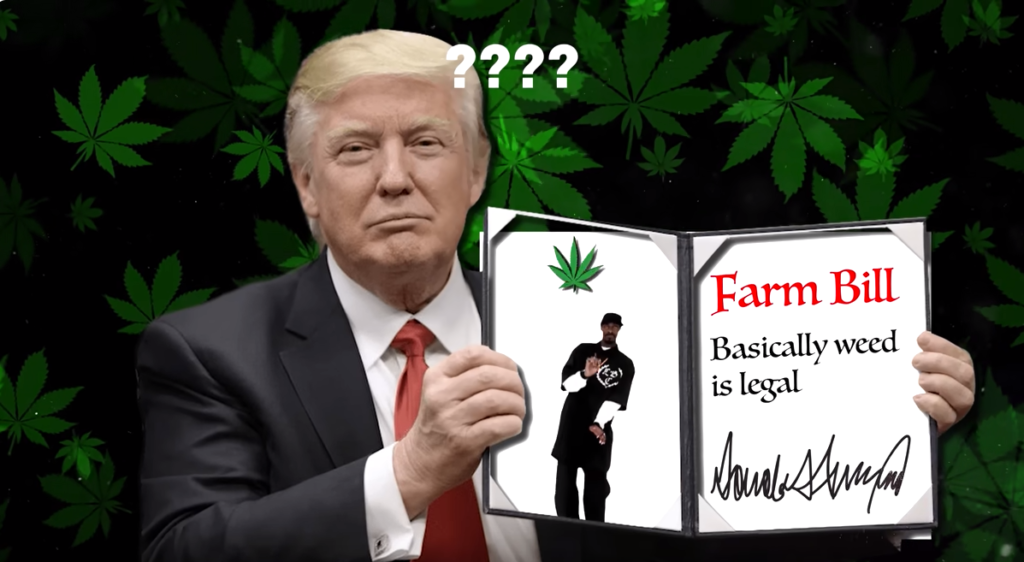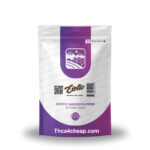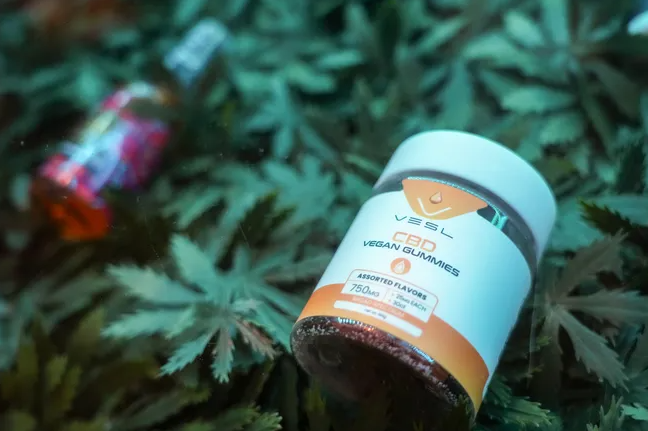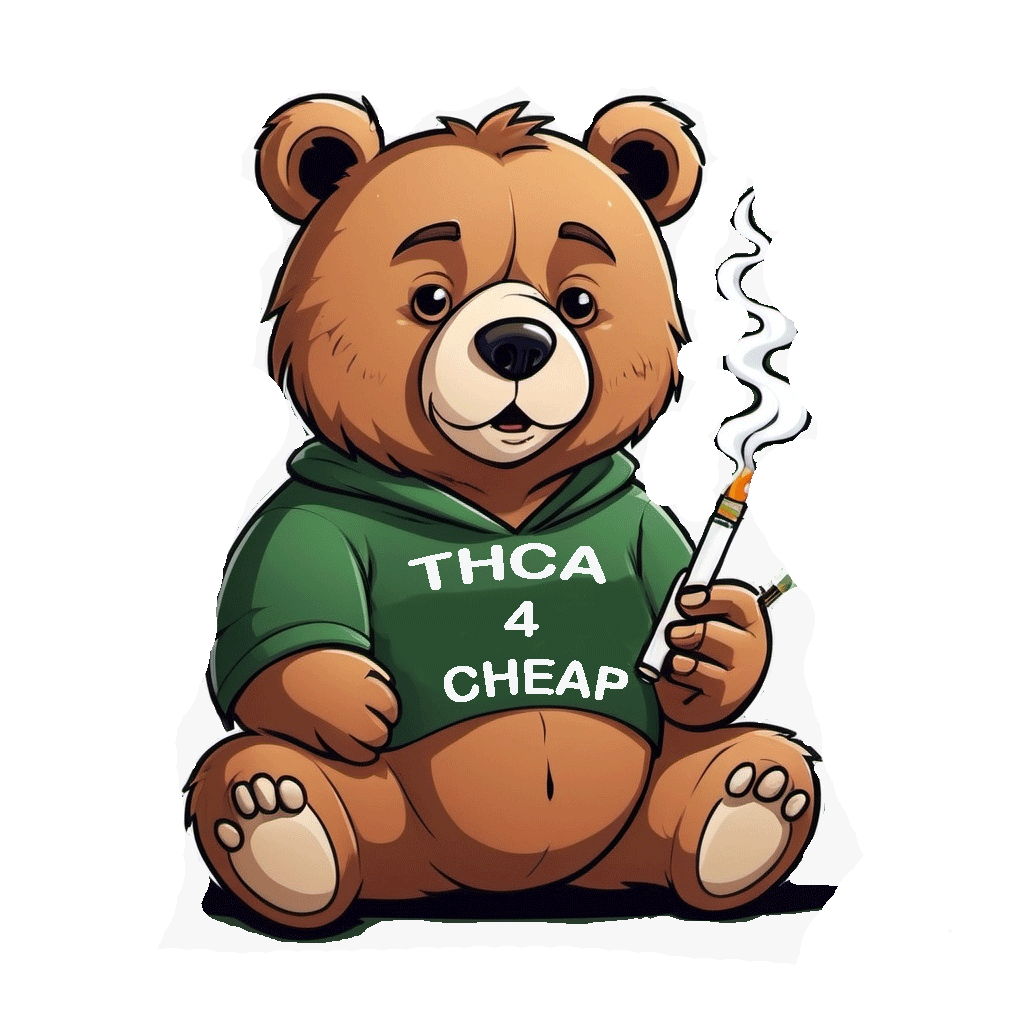Welcome to THCA4cheap.com: The Truth About Hemp-Derived THC
As you drive through Durham, North Carolina, you might notice a surprising trend: storefronts adorned with glittery “THC” signs, seven-pointed leaves decorating shop windows, and even a drive-through smoke shop with an alien mascot urging you to “Stay Lit.” But here’s the twist—marijuana isn’t legal in North Carolina. What’s fueling this cannabis culture boom? The answer lies in hemp.
Thanks to the Agricultural Improvement Act of 2018, or the 2018 Farm Bill, hemp—cannabis’s traditionally non-psychoactive cousin—was legalized across the United States. While lawmakers intended hemp to be used for products like textiles, CBD oil, and hemp seeds, they didn’t foresee the plant’s psychoactive potential. With some clever chemistry, hemp can now produce intoxicating effects similar to traditional marijuana, all while remaining federally legal.
Today, even though recreational marijuana is legal in only 24 states and Washington, D.C., anyone in the U.S. can legally experience a high thanks to hemp-derived THCA. The effects of these hemp-based products are virtually indistinguishable from those of marijuana found in states where it’s legal. As someone who has sampled recreational cannabis in states like California and Colorado, I can attest that the experience is strikingly similar.
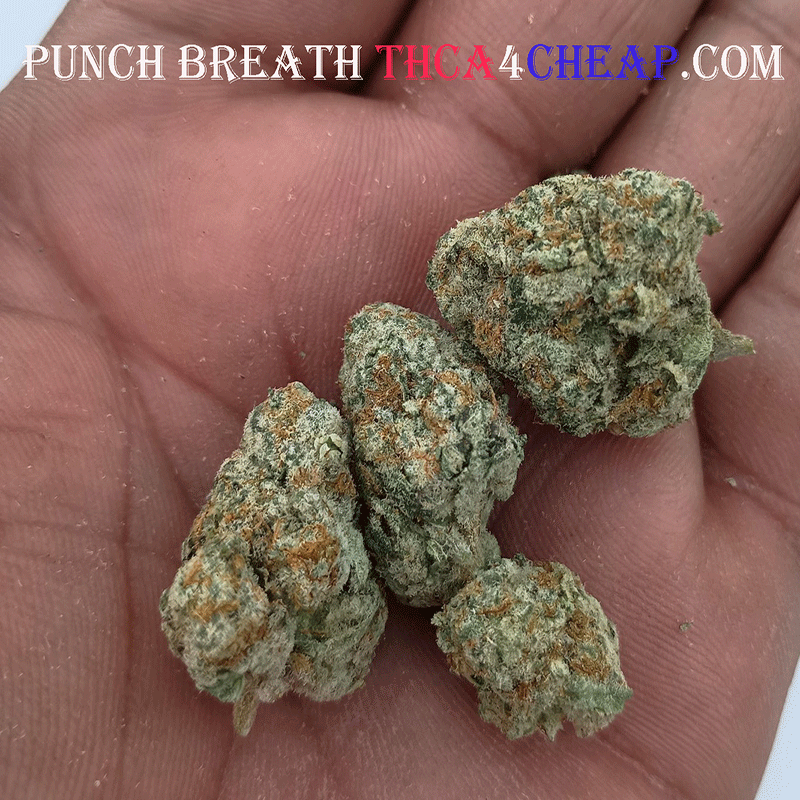
This unexpected legalization traces back to the botanical relationship between hemp and marijuana. Both are varieties of the same plant species, Cannabis sativa. The key difference lies in the cannabinoids—chemical compounds unique to cannabis. Marijuana is rich in delta-9 THC, the cannabinoid responsible for the high, while hemp typically contains only trace amounts of delta-9 THC and higher levels of CBD, a non-intoxicating compound. However, the 2018 Farm Bill allowed for the production of hemp with less than 0.3% delta-9 THC, which opened the door to new possibilities.
Originally, the push for hemp legalization was driven by eco-friendly motives, nutritional benefits, and the potential of CBD oil as a supplement. However, after the passage of the 2018 Farm Bill, the industry exploded. Hemp production soared from just over 25,000 acres in 2017 to more than 200,000 acres the following year, with most of it intended for CBD extraction. Unfortunately, the anticipated boom in CBD products never fully materialized due to regulatory hurdles, leading to a market glut.
But where CBD faltered, hemp-derived THC products found a new market. The Farm Bill’s definition of hemp as any cannabis plant containing less than 0.3% delta-9 THC by dry weight allowed for the creation of products that skirt the line between legal hemp and illegal marijuana. Essentially, while the THC content remains low, producers can extract, concentrate, and create products that offer a legal high.

In March 2002, the renowned Israeli chemist Raphael Mechoulam, who first synthesized and identified THC in the 1960s, made a groundbreaking discovery. Alongside two colleagues, Mechoulam filed a patent for converting CBD oil into delta-9 THC and delta-8 THC—two cannabinoids known for their intoxicating effects. At the time, this breakthrough was purely academic, as deriving THC from hemp was just as illegal as growing marijuana. However, the 2018 Farm Bill and the subsequent crash of the CBD market in late 2019 brought Mechoulam’s research into the spotlight with enormous practical implications.
According to the text of the Farm Bill, it appeared legal to convert CBD into delta-8 THC as long as the starting plant contained less than 0.3% delta-9 THC—a loophole later upheld by the Ninth Circuit Court of Appeals. Delta-8 THC began making headlines in 2020, sparking a surge in industry interest. Farmers, eager to offload surplus crops, quickly recognized the opportunity. As Chris Karazin, founder of Carolindica, a Raleigh-based dispensary, recalls, “We got so many calls from farmers saying, ‘I have so much crop just waiting to be sold.’ It was an amazing opportunity for extractors to step in and meet the demand.”
Carolindica and similar companies, while state-approved hemp processors, don’t synthesize cannabinoids themselves. Instead, they transform them into various products like edibles, tinctures, and smokable hemp joints, all legally available across all 50 states. The rapid rise of such businesses has reshaped the hemp industry, as traditional hemp advocates grapple with the shift from “rope not dope” to a market increasingly focused on psychoactive products.
Hemp-based intoxicants aren’t limited to delta-8 THC. The Farm Bill also permits the creation of hemp-derived delta-9 THC products, provided the total delta-9 content remains at or below 0.3% of the product’s dry weight. This is surprisingly easy to achieve. For example, Carolindica offers a 10-gram gummy containing 30 milligrams of hemp-derived delta-9 THC, precisely 0.3% of the gummy’s total weight. Other companies, like Crispy Blunts, sell products with even higher total THC content while still adhering to the Farm Bill’s regulations.
The hemp-derived cannabinoid industry has quickly grown into a multi-billion-dollar market, with products available at vape shops, gas stations, and even craft-beer shops. Despite attempts by some states to regulate or ban these products, federal law under the Farm Bill preempts most state-level restrictions, leading to legal battles and increasing tension between the hemp and marijuana industries.
The marijuana industry, facing stringent regulations, high taxes, and cash-only sales in tightly zoned locations, views the rise of hemp-derived cannabinoids as an unfair advantage. Marijuana lobbyists are pushing for parity in regulations, including caps on the strength of hemp-based intoxicants. Meanwhile, concerns about the safety of the chemical processes used to create these cannabinoids, as well as the potential risks of new, untested hemp derivatives, have led to calls for stricter oversight.
In response, a bipartisan group of 21 state attorneys general has urged Congress to close the “hemp intoxicants loophole” in the upcoming Farm Bill. However, this effort has met with resistance from the hemp industry and other stakeholders, including the Wine and Spirits Wholesalers of America, who advocate for regulation rather than prohibition.
The future of hemp-derived THC remains uncertain, but one thing is clear: the industry has become too large to ignore or easily shut down. As we watch this legal and regulatory landscape evolve, THCA4cheap.com remains committed to offering safe, legal, and high-quality hemp-derived products that meet your needs. Explore our wide selection and experience the innovation that’s reshaping the world of cannabis.
Orginal Article Located here. https://www.theatlantic.com/ideas/archive/2024/07/hemp-marijuana-legal-thc/678988/

